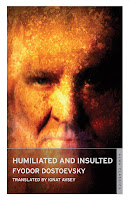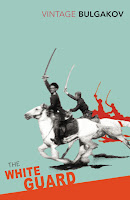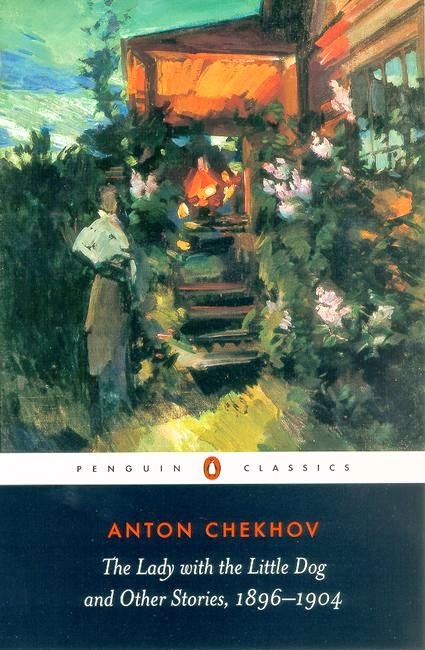
Staff Review by Chris Saliba
Dostoyevsky’s classic gets treated to a highly enjoyable new translation by Oliver Ready. Penguin books has published a new translation by Oliver Ready of the seminal Russian classic by Fyodor Dostoyevsky. The basic plot, while rather unappealing, is one of the world’s most famous. A 23-year-old former student, Raskolnikov, decides to kill an old pawnbroker, Alyona Ivanovna, with whom he’s had substantial dealings. Things don’t go to plan, however, and the pawnbroker’s younger sister, Lizaveta, accidently intrudes on the murder. She is killed too, brutally, with an axe. Raskolnikov has murdered the pawnbroker because he is impoverished and feels the money will get him off to a good start.
To help him psychologically deal with the murder, it later emerges that he has developed his own philosophy, outlined in a published essay, that essentially divides the population off into two categories. There are the ordinary people who follow the laws and are submissive. Then there is a breed of superior people who can ignore the common laws and be a law unto themselves. Napoleon is cited as a prime example: killing innocents in order to achieve his military goals never caused his conscience a pang. Raskolnikov believes he should be able to follow this philosophy. Napoleon, he surmises, wouldn’t even stop to think about killing an old pawnbroker. It wouldn’t even enter his head as a question.
That’s Raskolnikov’s theory on paper. However, once the murder is done, he spirals into a near total nervous collapse. Much like Shakespeare’s Lady Macbeth, his former confidence quickly unravels into madness. He becomes physically sick. Ironically, he becomes so ill after the murder that his friends and family must look after him. None really know why he is so sick, but it’s clear to the reader why, which creates a sense of suspense and tension. You fear that this illness will soon give him away.
Virginia Woolf wrote of Dostoyevsky’s writing, “Against our wills we are drawn in, whirled round, blinded, suffocated, and at the same time filled with a giddy rapture. Out of Shakespeare there is no more exciting reading.” It’s hard to pin an exact theme to
Crime and Punishment, the novel swirls around in such mad directions, seemingly losing control of itself in its many digressions. The dialogue is extraordinarily long, with single responses going on for pages. One thing is sure, it’s an incredibly detailed and complex psychological study of one man’s moral collapse. For this alone it’s unparalleled in literature, except arguably for Shakespeare, as Virginia Woolf noted. You could say that
Crime and Punishment is Dostoyevsky’s Macbeth.
Dostoyevsky sustains his suspenseful story with a wonderfully claustrophobic atmosphere. The Haymarket precinct of St Petersberg is where much of the action takes place and Dostoyevsky describes every nook and cranny of this urban environment - the narrow, twisting streets, grimy stairwells and connecting courtyards - in exhaustive details. One house’s architecture is characterised as almost an offence against all morality - a roof that slants at a weird angle, doors askew and asymmetric walls that bring on a sense of nausea. This atmosphere is brought to a climax in the descriptions of Raskolnikov’s poky apartment - it’s likened to a coffin at one stage. At every turn there is a terrible feeling of entrapment, of people being too close to each other, of festering antagonisms and extremely frayed nerves.
Dostoyevsky is probably not for everyone. I could understand readers finding his dialogue and the feeling of endlessness that permeates his writing too much. His style and outlook is hallucinatory and ironic. It’s like Jane Austen, but on LSD. If you’re like me, you’ll find
Crime and Punishment an awe inspiring achievement, it’s nothing less than a comprehensive map of the human heart.
Crime and Punishment, by Fyodor Dostoyevsky. Translated by Oliver Ready. Published by Penguin. ISBN: 9780141192802. RRP: 16.99
To sign up for our monthly newsletter, featuring new releases, book reviews and favourite articles from around the web, click here.











